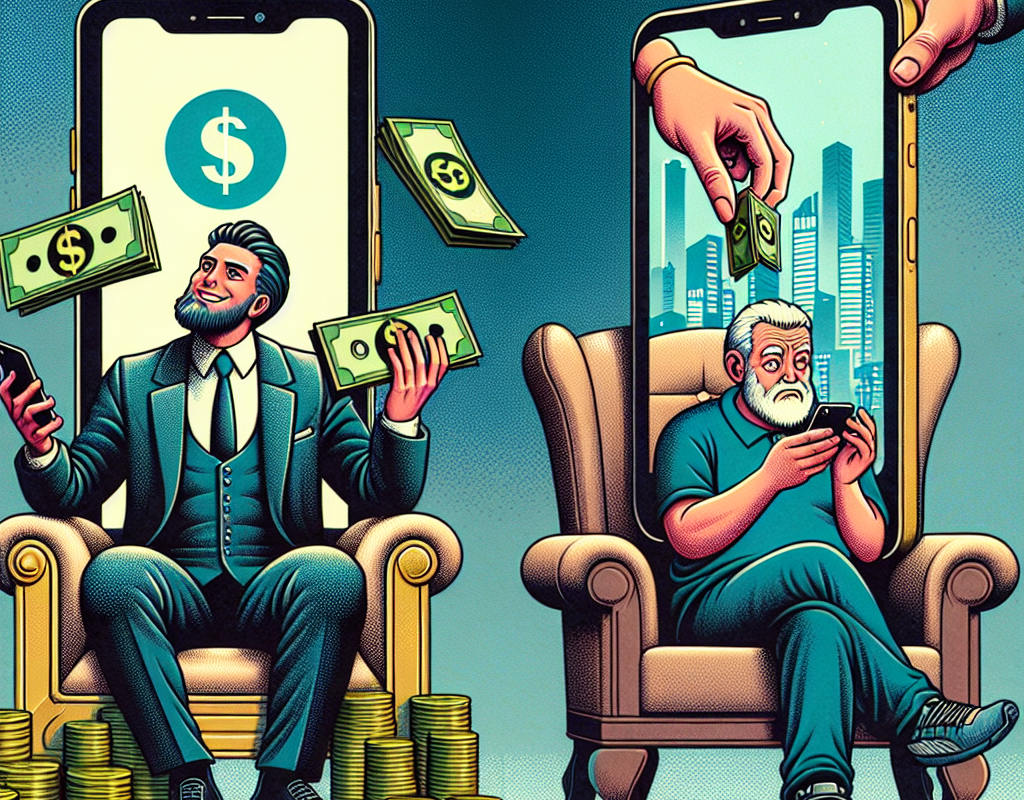It’s no secret that many people are feeling the weight of financial strain in today’s world. A recent tweet by BlazeWolf9998 highlights the frustration and disappointment that some individuals are experiencing. But what is the root cause of this widespread dissatisfaction? Is it the fault of the rich and powerful, as BlazeWolf9998 suggests?
The Burden of Economic Inequality
Economic inequality is one of the key factors contributing to the financial difficulties faced by the lower class. The gap between the rich and the poor has been widening over the past few decades, leaving those at the bottom struggling to make ends meet. This disparity in wealth distribution has significant consequences for society’s overall well-being.
The Pressure to Keep Up
BlazeWolf9998’s tweet touches upon an important point – the pressure to keep up with the latest trends and technologies. In a consumer-driven society, there is often an expectation that individuals, regardless of their financial situation, should constantly purchase the latest products. This pressure is particularly evident in the tech industry, with smartphones being a prime example.
The Cost of Constant Upgrades
The price of smartphones has skyrocketed over the past 15 years, making it increasingly difficult for lower-income individuals to afford them. Every year, the need to upgrade to the latest model becomes a norm perpetuated by advertising and societal expectations. However, this constant expenditure cycle burdens the lower class, forcing them to prioritize material possessions over other essential needs.
The Role of the Rich and Powerful
While it may be easy to blame the rich and powerful for the financial struggles of the lower class, the issue is far more complex. It is essential to recognize that economic inequality is not solely the result of a few individuals mismanaging the world’s money. Instead, it is a systemic problem that requires a collective effort to address.
A Broken System
At the heart of the issue lies a broken economic system that perpetuates inequality. Policies and structures that favour the wealthy often leave the less fortunate behind. These include tax loopholes, offshore accounts, and a lack of regulation that allows the rich to accumulate vast amounts of wealth while the lower class struggles to make ends meet.
The Need for Change
We must advocate for systemic change to alleviate the financial burden the lower class faces. This involves implementing policies that promote income equality, increasing access to education and healthcare, and reforming the tax system to ensure a fair distribution of wealth. By addressing the root causes of economic inequality, we can create a more equitable society for all.
The Way Forward
While the current state of affairs may seem disheartening, it is essential to remember that change is possible. By raising awareness about the impact of economic inequality and advocating for reform, we can begin to address the financial struggles faced by the lower class.
Empowering the Lower Class
One way to empower the lower class is to give them the tools and resources to improve their financial situation. This includes access to affordable housing, job training programs, and support for small businesses. By investing in the lower class’s potential, we can help individuals break free from the cycle of poverty.
A Call for Solidarity
Ultimately, the fight against economic inequality requires solidarity among all members of society. By coming together and demanding change, we can create a future where financial struggles are no longer daily. Only through collective action can we make a more just and equitable world.
In conclusion, the financial struggles the lower class faces are not solely the fault of the rich and powerful. Economic inequality and societal pressures play a significant role in perpetuating these challenges. By addressing the root causes and advocating for systemic change, we can work towards a more equal and fair society for all.
Related : Wesley Allen Ducheneaux, 29, Struck and Killed by Brightline Train in Indian River County.

